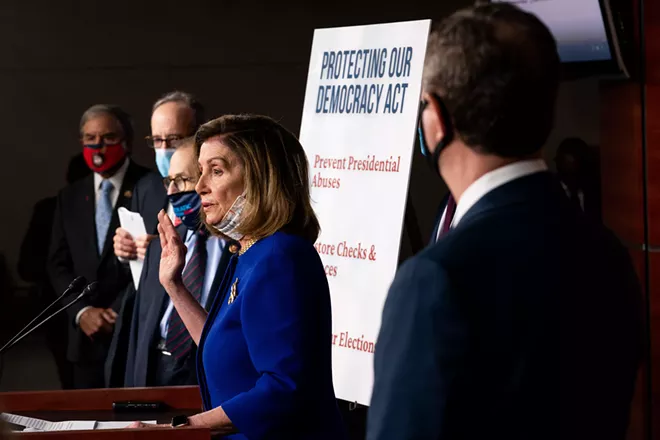
The New York Times Company
WASHINGTON — House Democrats unveiled a far-reaching package of government reforms Wednesday meant to protect federal watchdogs, bulk up congressional oversight powers and impose new penalties on presidential appointees who violate an ethics law by participating in political activities while on the job.
The multifaceted bill, assembled by seven House committee chairmen at the direction of Speaker Nancy Pelosi, is Democrats’ most comprehensive response to date to what they consider abuses and excesses by President Donald Trump and his administration. It has almost no chance of becoming law as long as Trump is in office, but Democrats say the bill would be an early priority if their party retakes control of the Senate and the White House in January.
Republicans are unlikely to see the proposals in such a favorable light, though some of them aim to address concerns that have cropped up in other administrations when Democrats and Republicans have technically stayed within the bounds of the law but defied Congress’ intent.
Even institutionalists in the party who have traditionally fought for Congress’ interests against the executive branch now view House Democrats as fixated on destroying Trump above all else and disingenuous in their desire for real bipartisan change. Several of the provisions are likely to be susceptible to legal challenge.
The bill would grant new protections to whistleblowers, including the right to sue if they are publicly identified by government officials, as was the case with an anonymous intelligence agency whistleblower whose complaint about a July 2019 phone call by Trump prompted the impeachment inquiry.
Another section of the bill would take aim at Trump’s rash of firings of independent inspectors general embedded in federal agencies who were investigating him or his appointees. It would stipulate that only the president can fire an inspector general and only for cause.
Democrats would try to limit the president’s pardon powers, explicitly outlawing presidents from pardoning themselves, and pause the statute of limitations on any federal offense committed by presidents or vice presidents during their time in office so they cannot escape charges that would otherwise be brought if they were not in office.
And amid myriad fights with the White House over whether congressional subpoenas must be obeyed, Democrats propose requiring the courts to expedite those lawsuits enforcing the summons to prevent lengthy delays in testimony and allow courts to impose “monetary penalties” on individuals who defied subpoenas.














